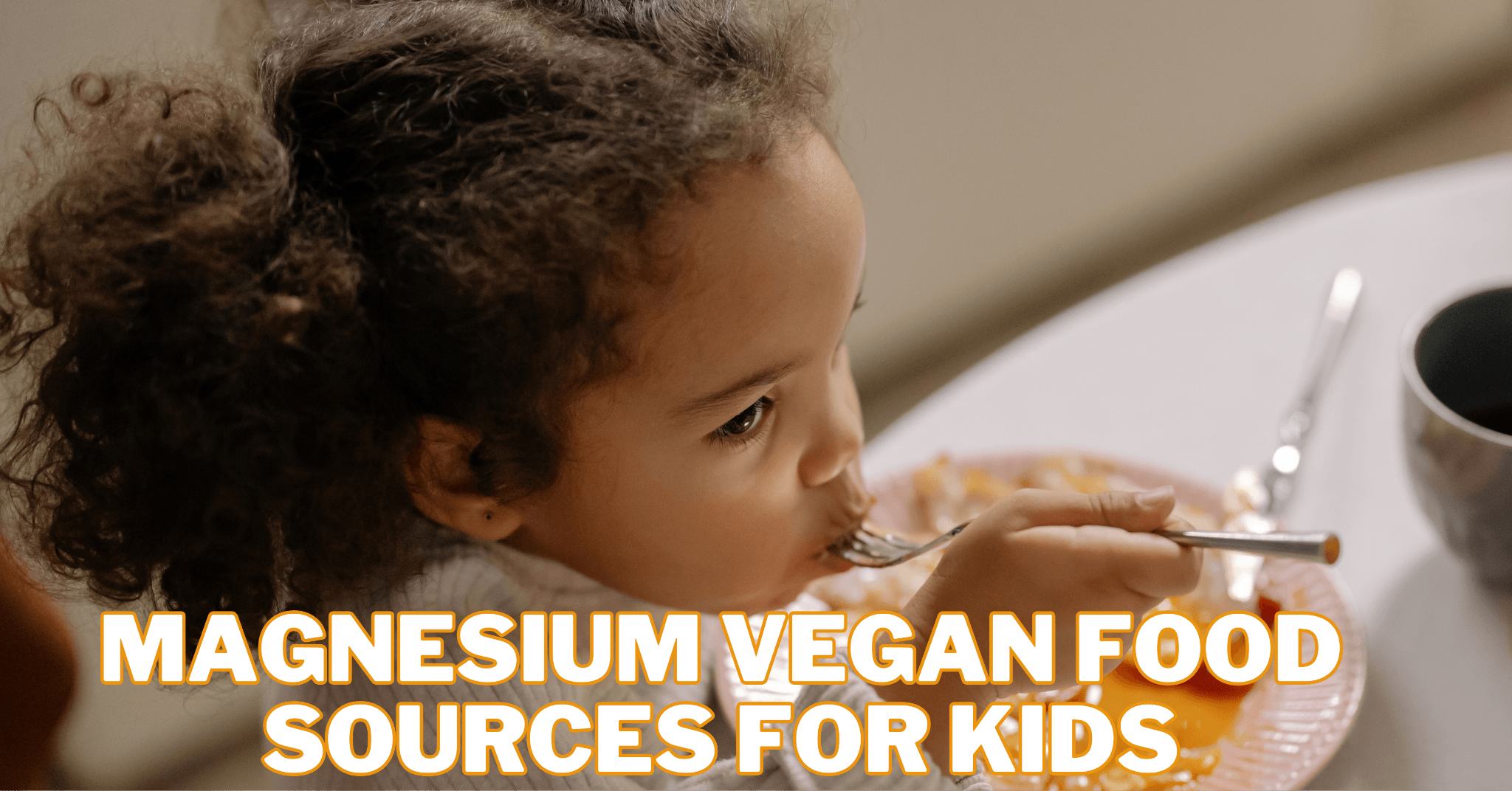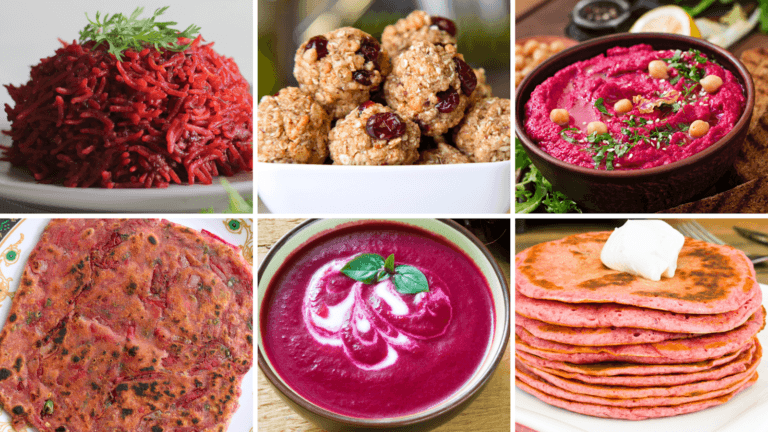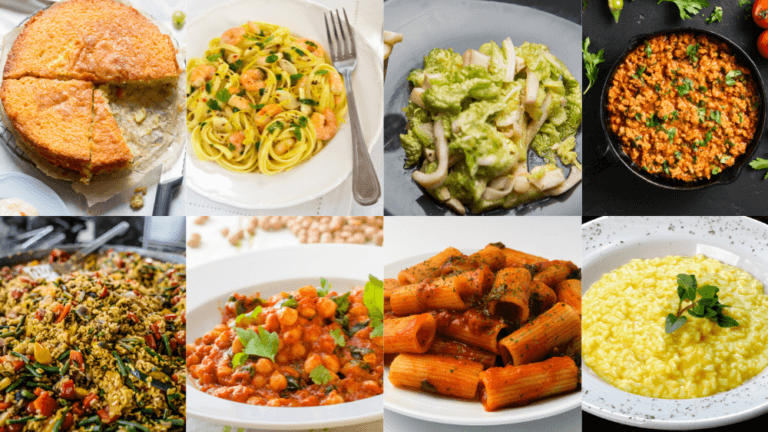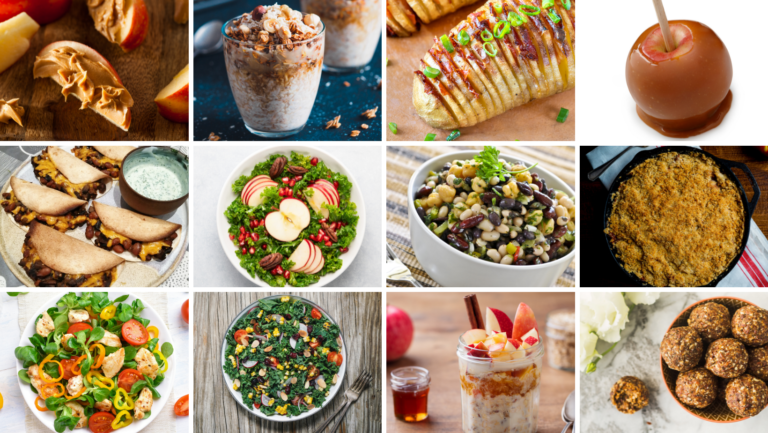Best Magnesium Vegan Food Sources For Kids
Best Magnesium Vegan Food Sources For Kids
As vegan families navigate parenting challenges, discovering reliable magnesium vegan food sources for kids becomes paramount for their overall health amidst a plant-powered diet.
Magnesium, an often overlooked mineral essential for the growth and development of young minds and bodies, deserves a place in the nutritional spotlight.
As we navigate the landscape of raising vegan children, discovering reliable sources of magnesium becomes paramount for their overall health.
This article serves as a compass for parents seeking to provide their kids with the right balance of nutrients, focusing specifically on magnesium-rich vegan foods.
From leafy greens to seeds and legumes, we'll explore various delicious options that meet the nutritional needs of growing bodies and make plant-based eating an exciting and flavourful adventure for your little ones.
Join us as we uncover the vibrant world of magnesium-packed plant foods, creating a foundation for your child's health and well-being.
Why Do Children Need Magnesium in Their Diet?
Children require magnesium in their diets because it plays a critical role in supporting various physiological functions essential for their growth and well-being.
Magnesium is a key player in bone development, working with calcium to ensure proper bone density and strength during the formative years. This mineral also plays a pivotal role in muscle function, aiding muscle contraction and relaxation.
Moreover, magnesium is essential for the proper functioning of the nervous system, contributing to neurotransmitter regulation and nerve transmission. This has implications for cognitive development and overall neurological health in children.
Additionally, magnesium supports energy metabolism, helping to convert food into energy, which is crucial for children's active and dynamic lifestyles.
Furthermore, magnesium influences the balance of other essential minerals, such as potassium and sodium, contributing to a well-regulated cardiovascular system.
Adequate magnesium intake has also been linked to improved sleep quality, which is crucial for a child's overall growth and development.
Ensuring a sufficient supply of magnesium in children's diets is fundamental for fostering strong bones, healthy muscles, a well-functioning nervous system, and overall robust physical and cognitive development.
What Is The Daily Magnesium Requirement For A Child?
The daily magnesium requirement for a child can vary depending on age, sex, and individual health conditions. Generally, the recommended dietary allowance (RDA) set by health authorities can provide guidelines.
As of my knowledge cutoff in January 2022, the following are the RDAs for magnesium in milligrams (mg) per day for different age groups:
1. Infants
- 0-6 months: 30 mg
- 7-12 months: 75 mg
2. Children
- 1-3 years: 80 mg
- 4-8 years: 130 mg
- 9-13 years: 240 mg
It's important to note that these values are general recommendations, and individual needs may vary. Adolescents may have higher magnesium requirements due to growth spurts and increased physical activity.
Magnesium-rich foods such as leafy green vegetables, nuts, seeds, whole grains, and legumes are excellent sources to incorporate into a child's diet to meet these requirements.
A balanced and varied diet and an awareness of individual health factors will ensure that a child receives adequate magnesium for optimal growth and development.
Always consult a healthcare professional for personalized advice based on a child's needs.
Exploring The Magnesium Vegan Food Sources For Kids
Ensuring your child gets the nutrients they need for optimal growth is a top priority in the busy world of parenting. Magnesium is an essential mineral that is necessary for many body processes that are essential to a child's growth.
The difficulty for parents of vegan children is locating trustworthy sources of magnesium. Don't worry. We will explore vegan meals high in magnesium perfect for our littlest family members.
So, let’s get started:
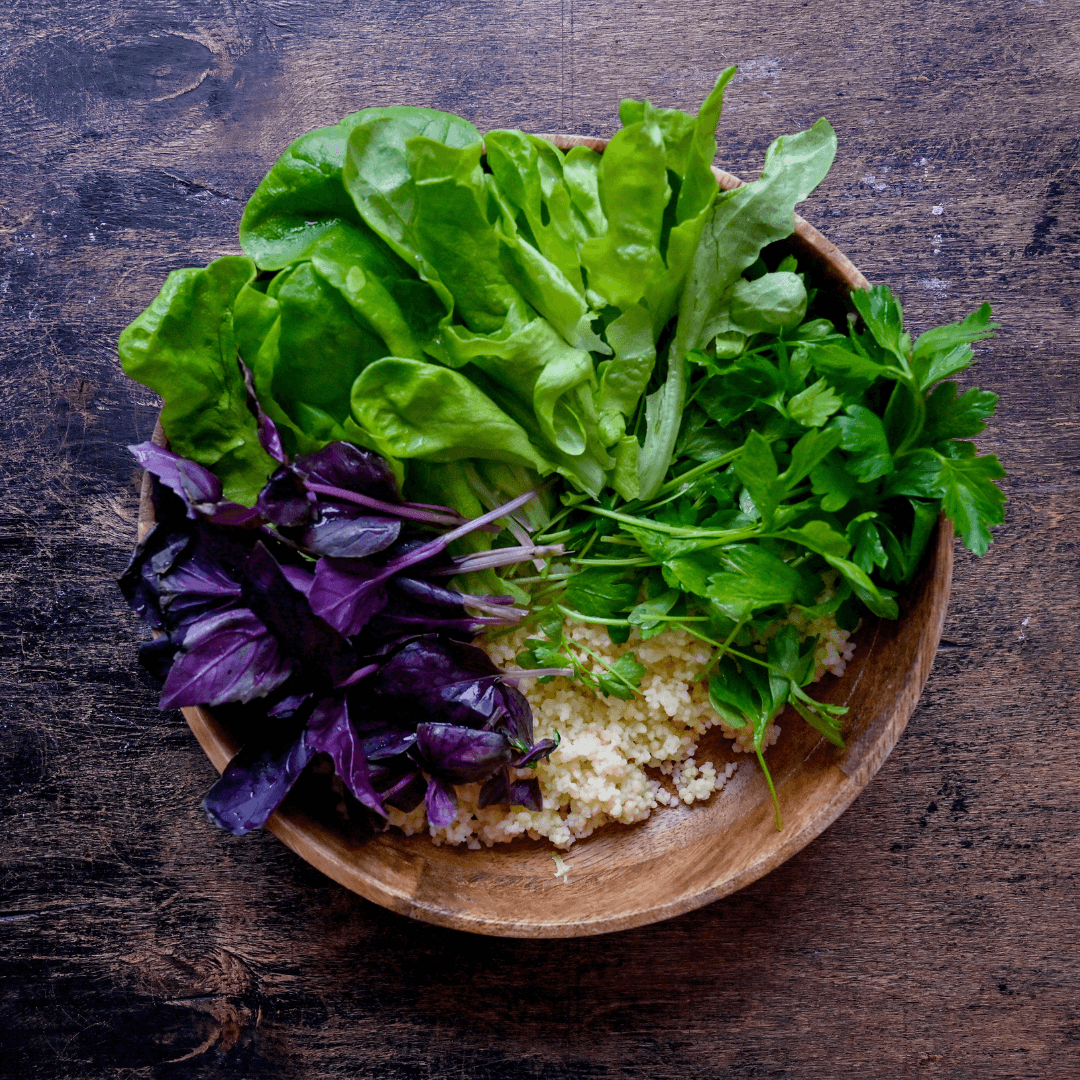
1. Dark Leafy Greens
Dark leafy greens, like spinach, kale, Swiss chard, and collard greens, serve as vital magnesium vegan food sources for kids. They foster bone health, support muscle function, and contribute to overall well-being.
To seamlessly incorporate these nutrient-rich greens into your child's diet, consider blending them into vibrant smoothies.
Combine spinach with sweet fruits like bananas and berries for a tasty, magnesium-packed green boost that easily disguises the leafy goodness.
The versatility of these greens extends to savoury dishes – stir-fries become an excellent canvas for introducing kale or Swiss chard, ensuring a savoury magnesium infusion that complements various flavours.
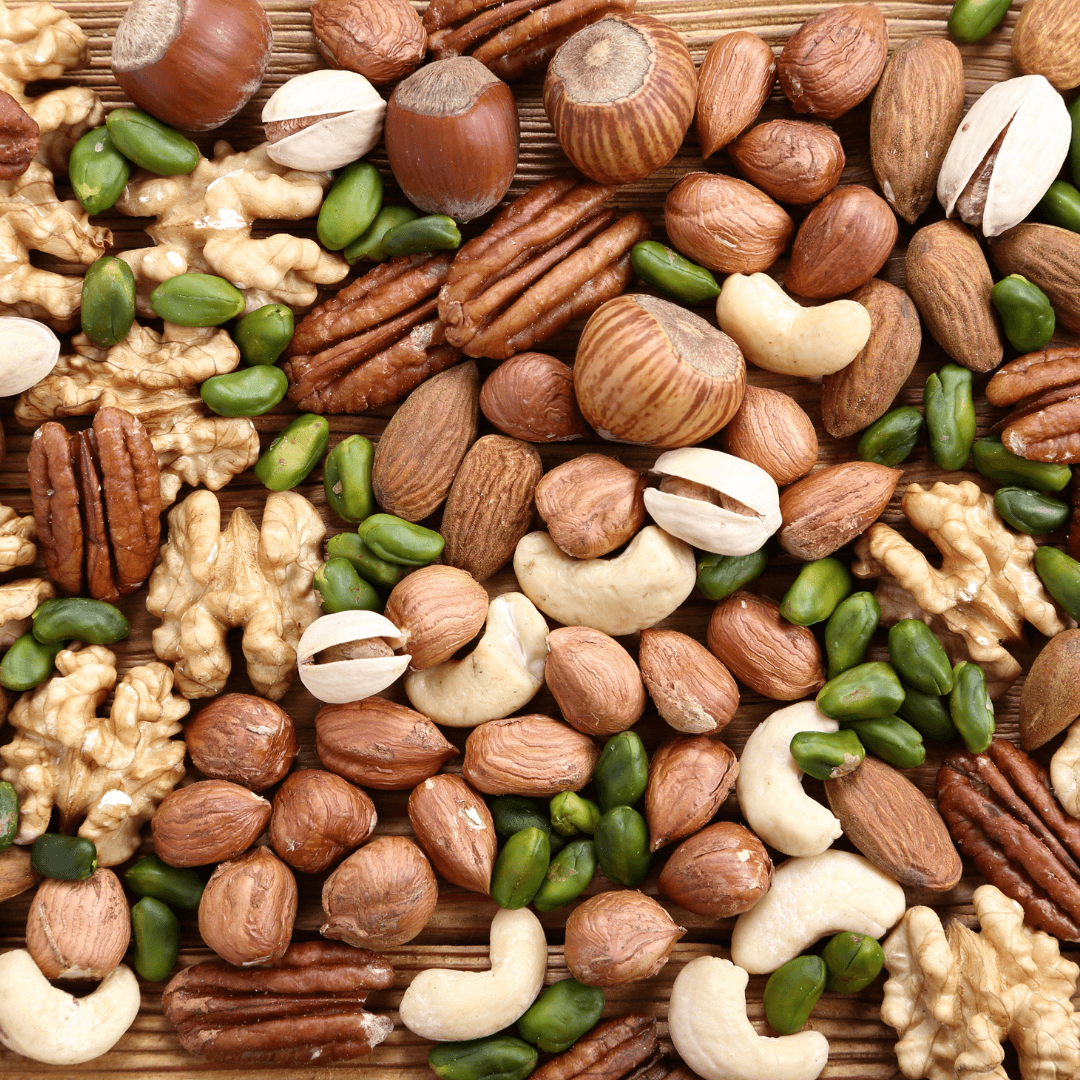
2. Nuts
Nuts, such as almonds, cashews, and Brazil nuts, are nutritional powerhouses that offer the dual benefit of healthy fats and magnesium, which is crucial for your child's well-being.
Almonds, rich in magnesium, support bone health and nerve function. These nuts present a versatile and delicious way to introduce magnesium into your child's diet.
The natural crunch of cashews and the distinct flavour of Brazil nuts contribute to magnesium and provide essential vitamins and minerals.
Elevate breakfast by sprinkling crushed nuts on dishes like oatmeal or plant-based yogurt. This imparts a delightful texture and enhances the nutritional profile.
By seamlessly integrating almonds, cashews, and Brazil nuts into your child's daily meals, you provide healthy fats and prioritize the magnesium intake essential for their overall health and development.
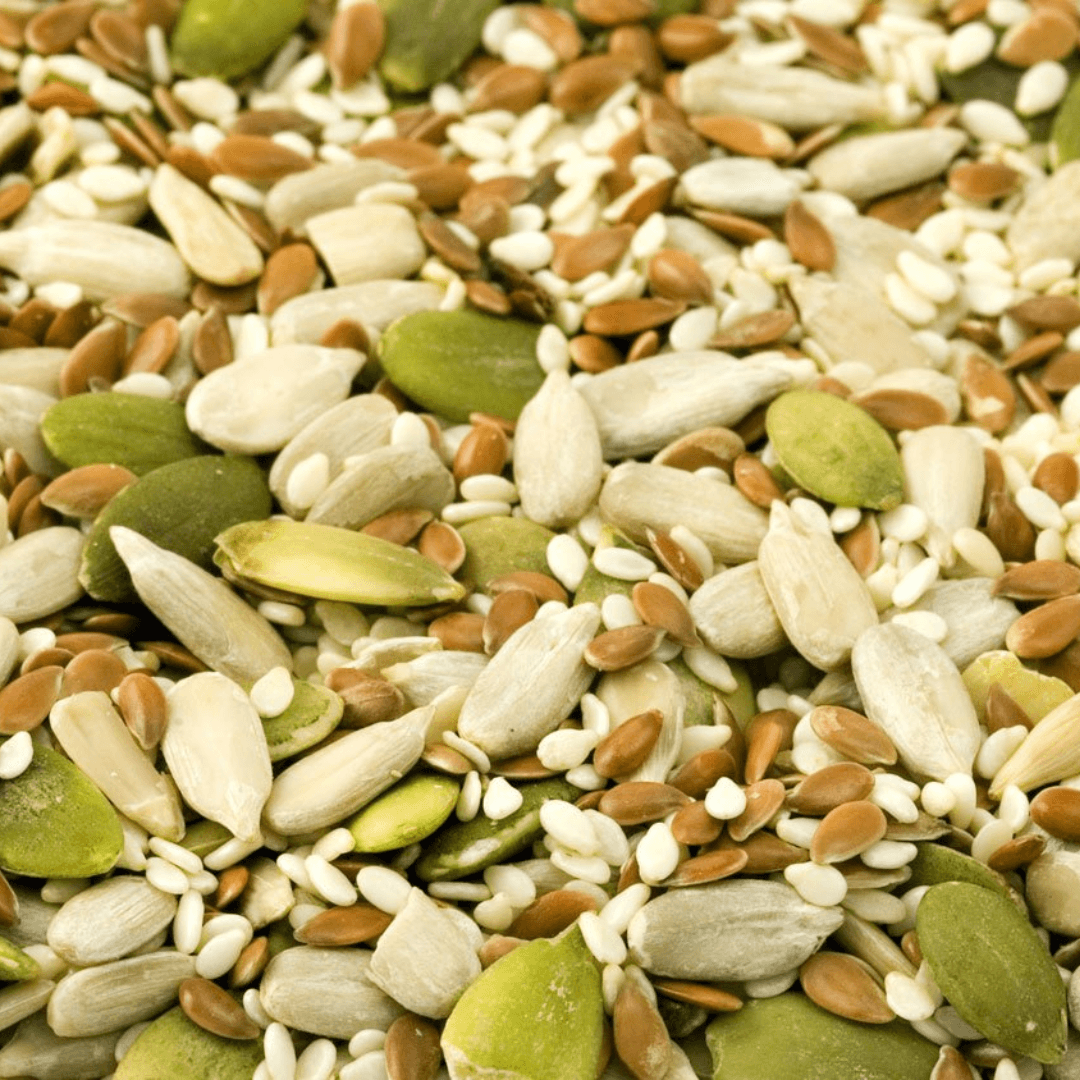
3. Seeds
Seeds, such as pumpkin, sunflower, flaxseed, and chia seeds, emerge as miniature nutritional powerhouses and concentrated magnesium vegan food sources for kids. They play a vital role in their development and contribute to bone health and immune function.
Pumpkin seeds are rich in magnesium and contribute to bone health and immune function. These tiny marvels offer a versatile means of enhancing your child's diet.
Sprinkle pumpkin, sunflower, or chia seeds on vegan yogurt or cereals to infuse breakfast with a delightful crunch and a magnesium boost. The soluble fibre in flaxseeds supports digestive health, adding an extra nutritional benefit to your child's meals.
Combine these seeds into homemade energy bites with dried fruits and oats for a creative twist. This provides a tasty snack and ensures a steady supply of magnesium throughout the day.
Seamlessly integrating these seeds into various dishes enhances flavour and texture and prioritizes magnesium intake, which is crucial for your child's overall well-being.
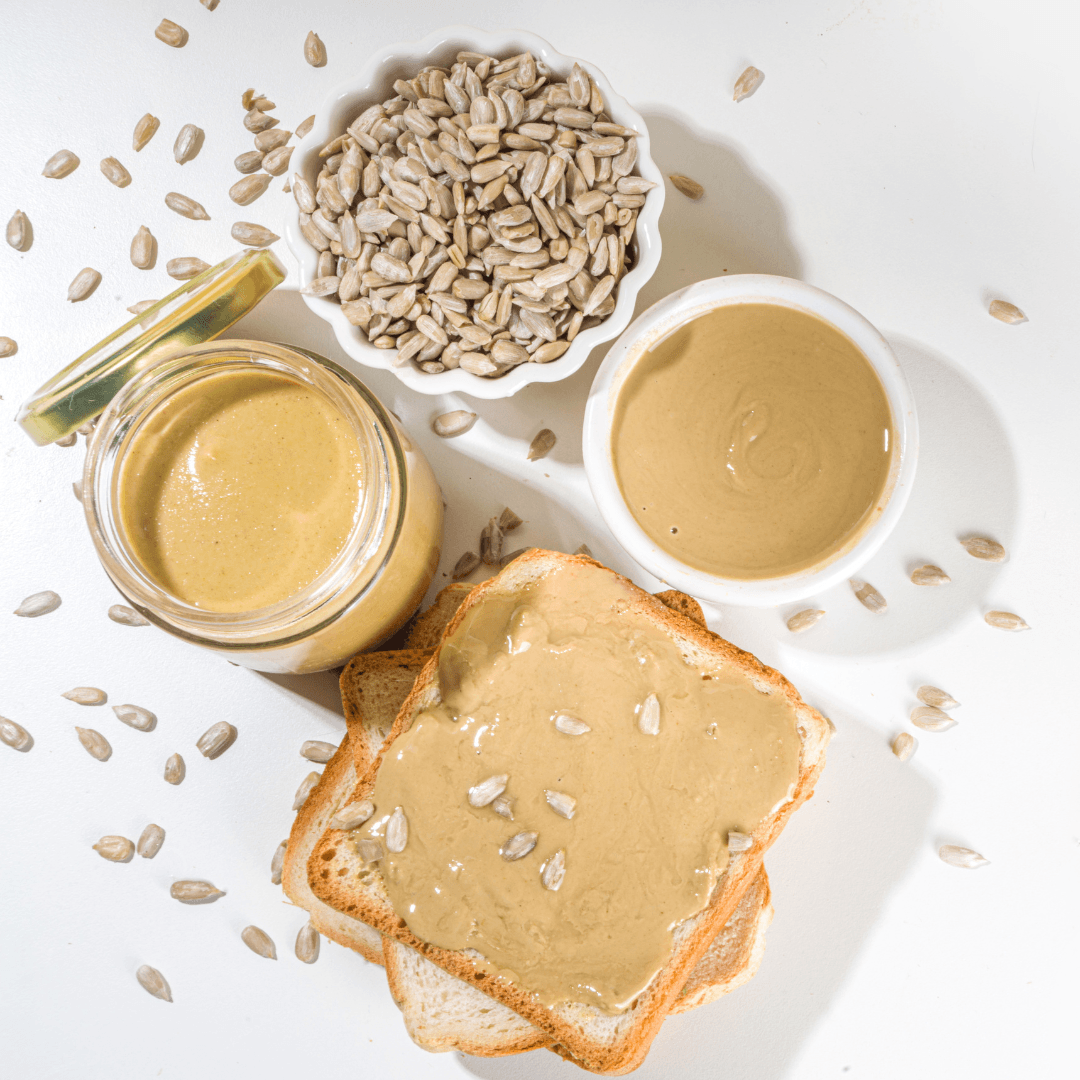
4. Sunflower Seed Butter
Sunflower seed butter stands out as a delectable magnesium vegan food source for kids. It offers a delightful taste and contributes essential magnesium to support bone health.
Rich in magnesium, this creamy butter becomes a flavorful addition to your child's diet, seamlessly enhancing their nutritional intake.
Spread sunflower seed butter generously on whole-grain bread to create a wholesome and satisfying sandwich.
The magnesium content supports bone development and aids in muscle function. Elevate snack time by using sunflower seed butter as a dip for apple slices.
This crunchy and flavorful combination combines the natural sweetness of apples with the nutty richness of the butter.
This versatile spread caters to taste preferences and ensures your child receives the magnesium necessary for overall well-being.
Introducing sunflower seed butter into daily meals adds a nutritional twist, making healthy choices delicious and accessible for your child's growing palate.
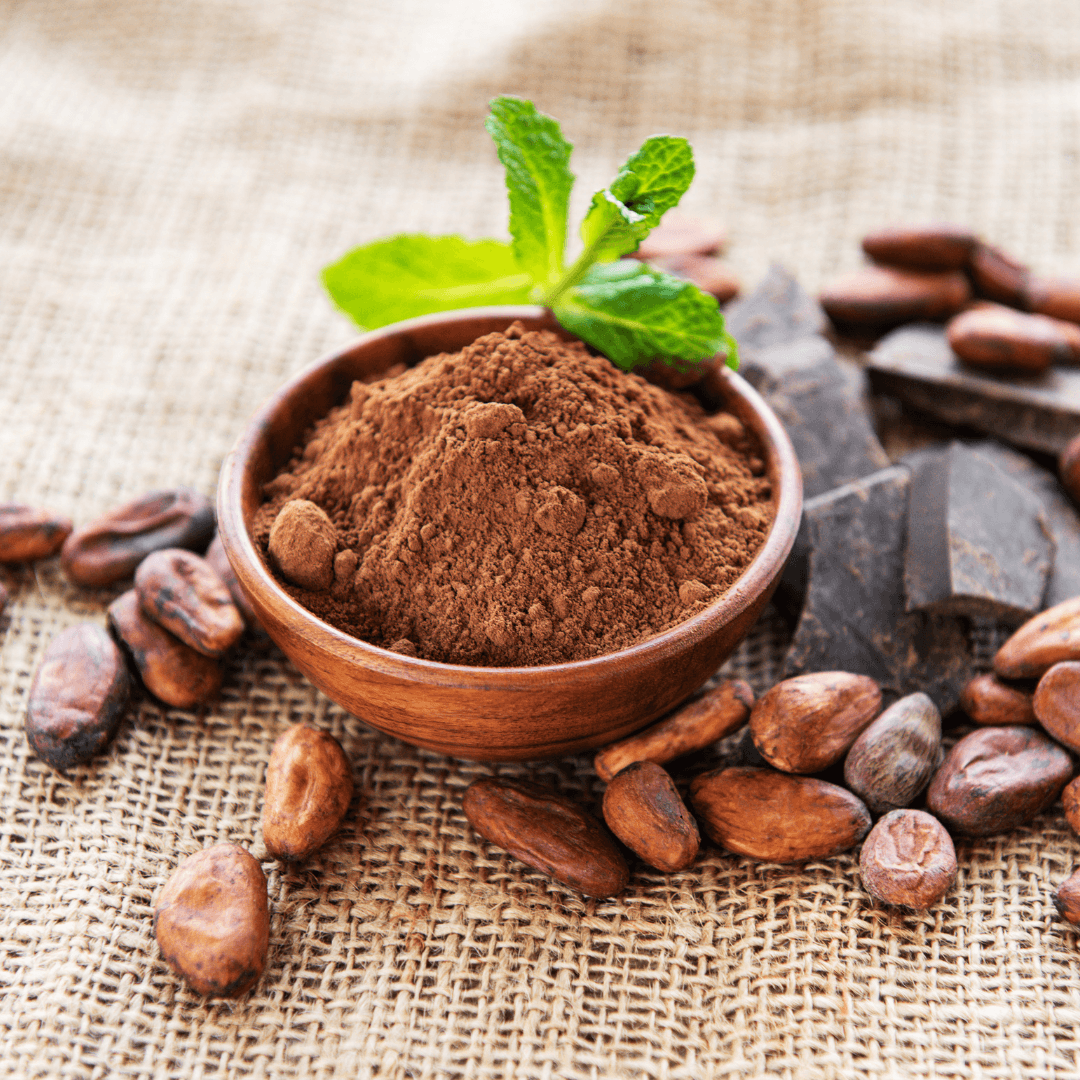
5. Cacao Nibs
Cacao nibs, derived from raw cacao beans, offer a delightful and nutrient-rich way to introduce magnesium into your child's diet.
These nibs, bursting with the essence of chocolate, provide a chocolatey crunch while packing a magnesium punch crucial for various bodily functions.
Sprinkle cacao nibs on oatmeal or yogurt to elevate breakfast with a rich, chocolate-infused texture. The magnesium content supports bone health and contributes to muscle function.
For a delectable twist, blend cacao nibs into smoothies, creating a kid-approved treat that combines the goodness of fruits with the irresistible taste of chocolate.
Beyond their deliciousness, cacao nibs bring additional nutritional benefits, including antioxidants and fibre.
By incorporating these raw cacao delights into your child's daily meals, you cater to their sweet tooth and prioritize their magnesium intake, fostering a positive association between health and indulgence.
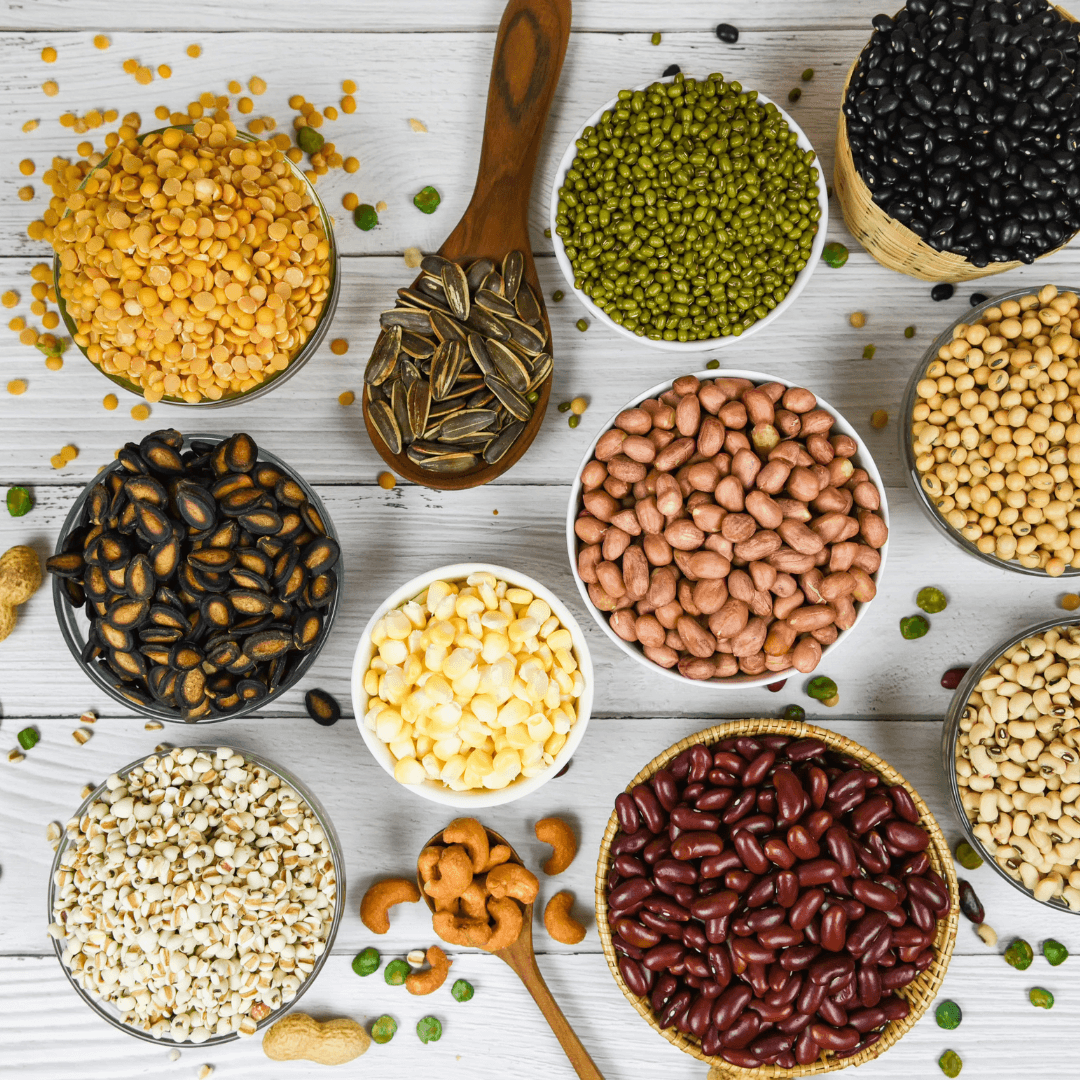
6. Whole Grains
Whole grains, including quinoa, brown rice, and oats, are invaluable magnesium vegan food sources for kids, playing a crucial role in supporting their growth and contributing to bone health.
These grains not only contribute to bone health but also offer a myriad of nutritional benefits.
Quinoa, a versatile pseudo-grain, can be a delightful side dish, introducing a nutty flavour and a magnesium boost to complement main courses.
Brown rice, with its wholesome texture, serves as a nutritious foundation for various meals, providing sustained energy and supporting overall well-being.
For breakfast, opt for whole-grain cereals that incorporate quinoa, oats, or brown rice, ensuring a morning meal rich in magnesium.
Take it further by including oats in homemade granola bars, creating a convenient and tasty snack that seamlessly incorporates magnesium into your child's diet.
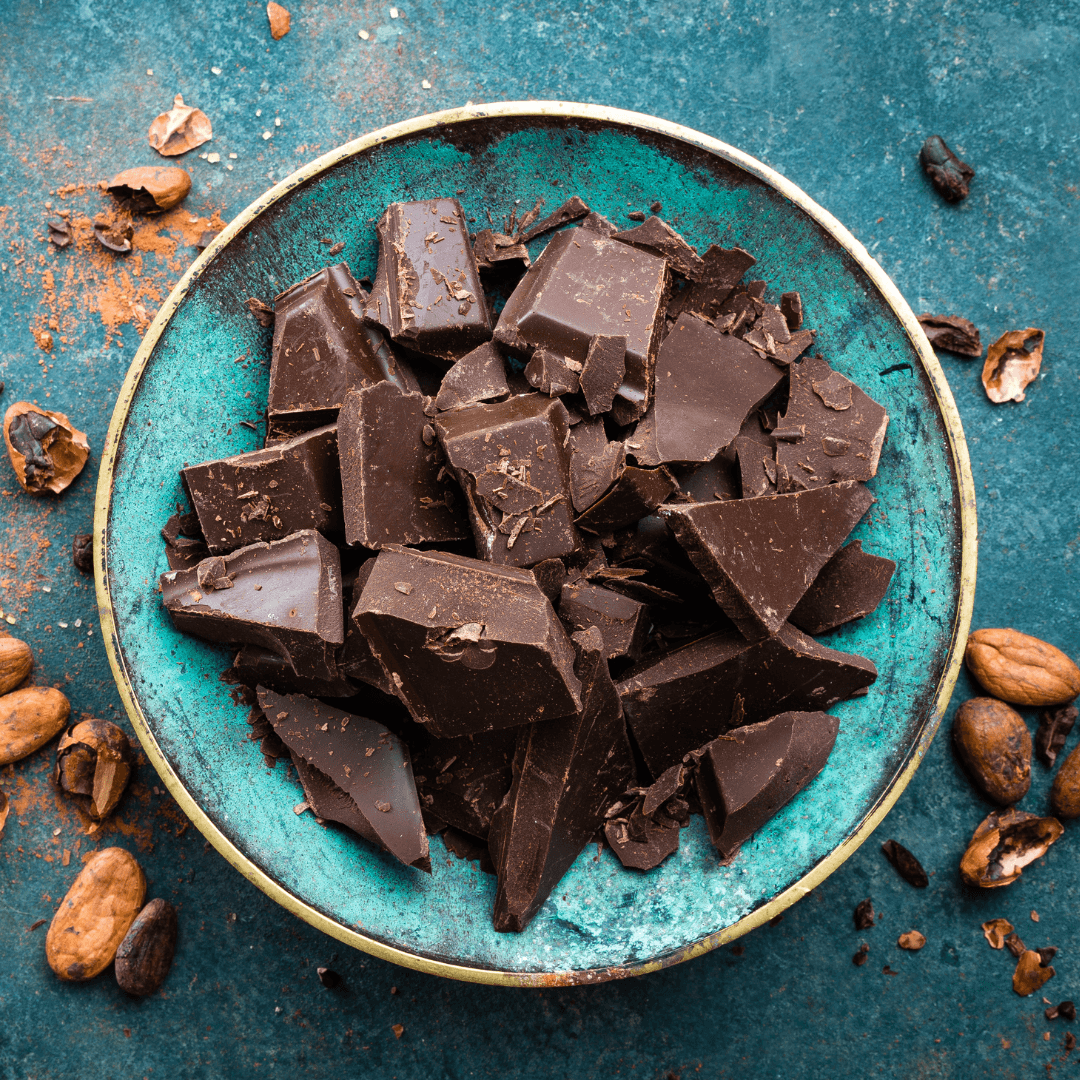
7. Dark Chocolate
Dark chocolate with a higher cocoa content becomes more than just a sweet indulgence—it transforms into a magnesium-rich treat for kids.
Opting for dark chocolate with at least 70% cocoa ensures a substantial magnesium boost.
Magnesium plays a vital role in bone health, muscle function, and overall well-being, making this delectable choice a delightful addition to your child's diet.
Dark chocolate's rich, intense flavour satisfies taste buds and introduces a subtle bitterness that complements the sweetness.
Whether enjoyed on its own or paired with nuts and dried fruits, choosing dark chocolate with a higher cocoa content ensures your child receives a delightful treat and a valuable contribution to their magnesium intake, fostering a balance between pleasure and nutritional well-being.
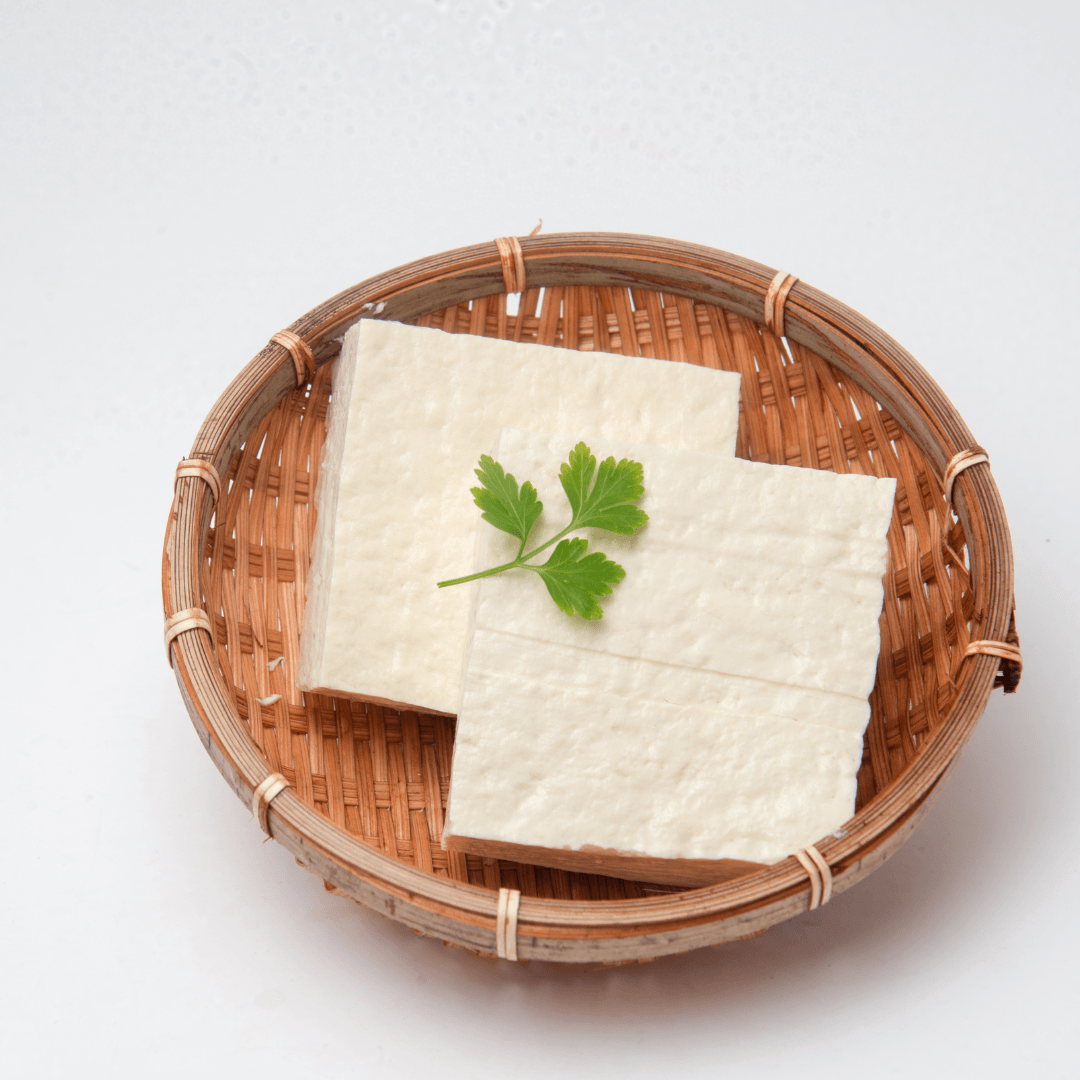
8. Tofu
Tofu, derived from soybeans, serves as an excellent magnesium vegan food source for kids, contributing to their protein and iron intake and ensuring essential magnesium for their overall nutrition and development.
Made from soybeans, tofu is an excellent protein, iron, and, importantly, magnesium source. Its mild taste allows it to absorb the flavours of the ingredients it's paired with, making it an ideal addition to savoury and sweet dishes.
Tofu can be stir-fried, grilled, or incorporated into soups and stews in savoury dishes. Its ability to take on different textures makes it suitable for anything from hearty main courses to light salads.
For a sweet twist, blend silken tofu into smoothies or use it in desserts for a creamy, plant-based alternative.
With its nutritional profile and adaptability, tofu becomes a cornerstone in creating diverse, delicious, and magnesium-rich meals for kids, ensuring they get the essential nutrients for their growth and development in a tasty and cruelty-free manner.
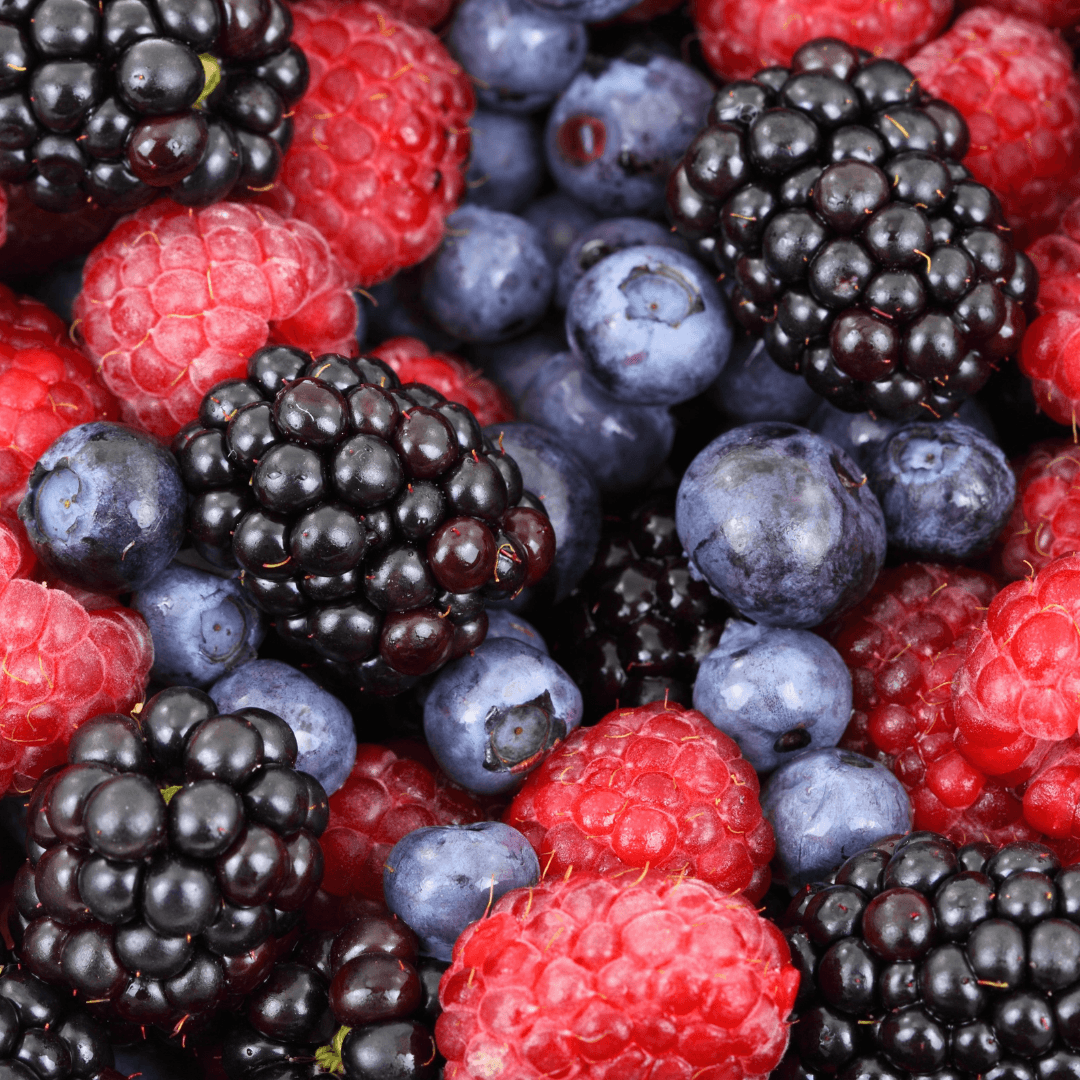
9. Berries
Berries, comprising blueberries, raspberries, and strawberries, emerge as vibrant and enticing magnesium vegan food sources for kids, captivating their taste buds with delectable sweetness and providing a nutritious boost to breakfast cereals, smoothies, and snacks.
Beyond their delectable sweetness, these vibrant fruits enhance breakfast cereals, smoothies, and snacks with a nutritious boost.
Blueberries, with their rich antioxidant content, contribute both magnesium and various health benefits.
Raspberries add a tangy twist and additional magnesium, while the heart-shaped strawberries provide a sweet and juicy option.
Their versatility makes them perfect for pairing with various dishes, creating visually appealing and nutritionally dense meals.
Add these magnesium-rich berries to morning cereals, blend them into colourful and nutrient-packed smoothies, or enjoy them as standalone snacks.
Their natural sweetness makes them an appealing choice for children, introducing essential minerals in a delicious and visually appealing form, ensuring a delightful and nutritious addition to your child's diet.
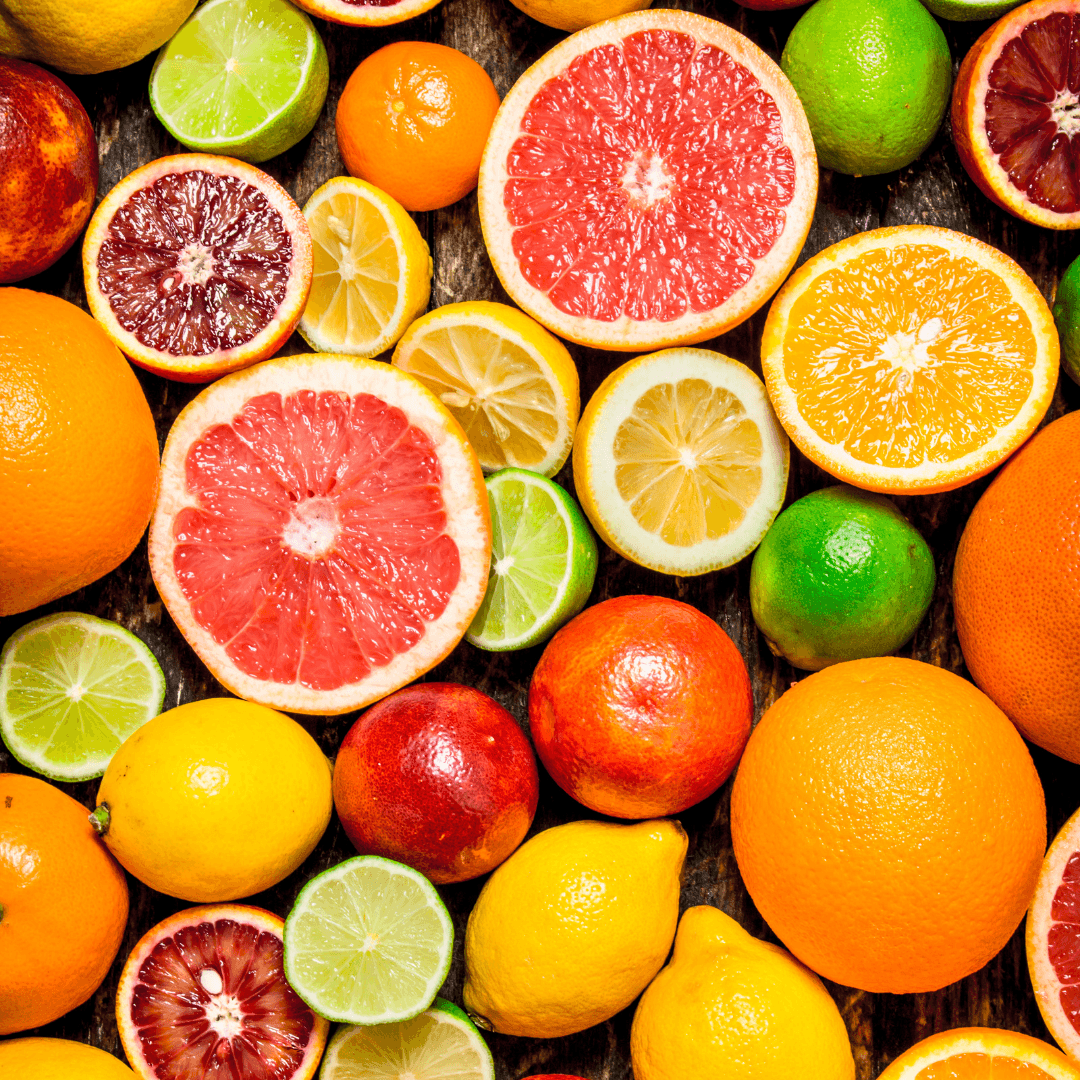
10. Citrus Fruits
Citrus fruits, including oranges and grapefruits, offer more than just a burst of refreshing flavour—they bring a dual benefit of vitamin C and magnesium to your child's diet.
Alongside their immune-boosting vitamin C content, these fruits contribute magnesium, a mineral crucial for bone health and overall well-being.
Incorporate citrus segments into vibrant fruit salads, creating a medley of colours and flavours that entices children to enjoy a magnesium-rich snack.
Freshly squeezed orange juice becomes more than a morning beverage; it becomes a hydrating and nutrient-packed elixir that combines sweetness with essential minerals.
Whether enjoyed in whole fruit form, as part of a salad, or in liquid form, these citrus gems not only provide a tasty and visually appealing addition to meals but also ensure your child receives the vital magnesium necessary for their growth and development in a form that's both delicious and nutritious.
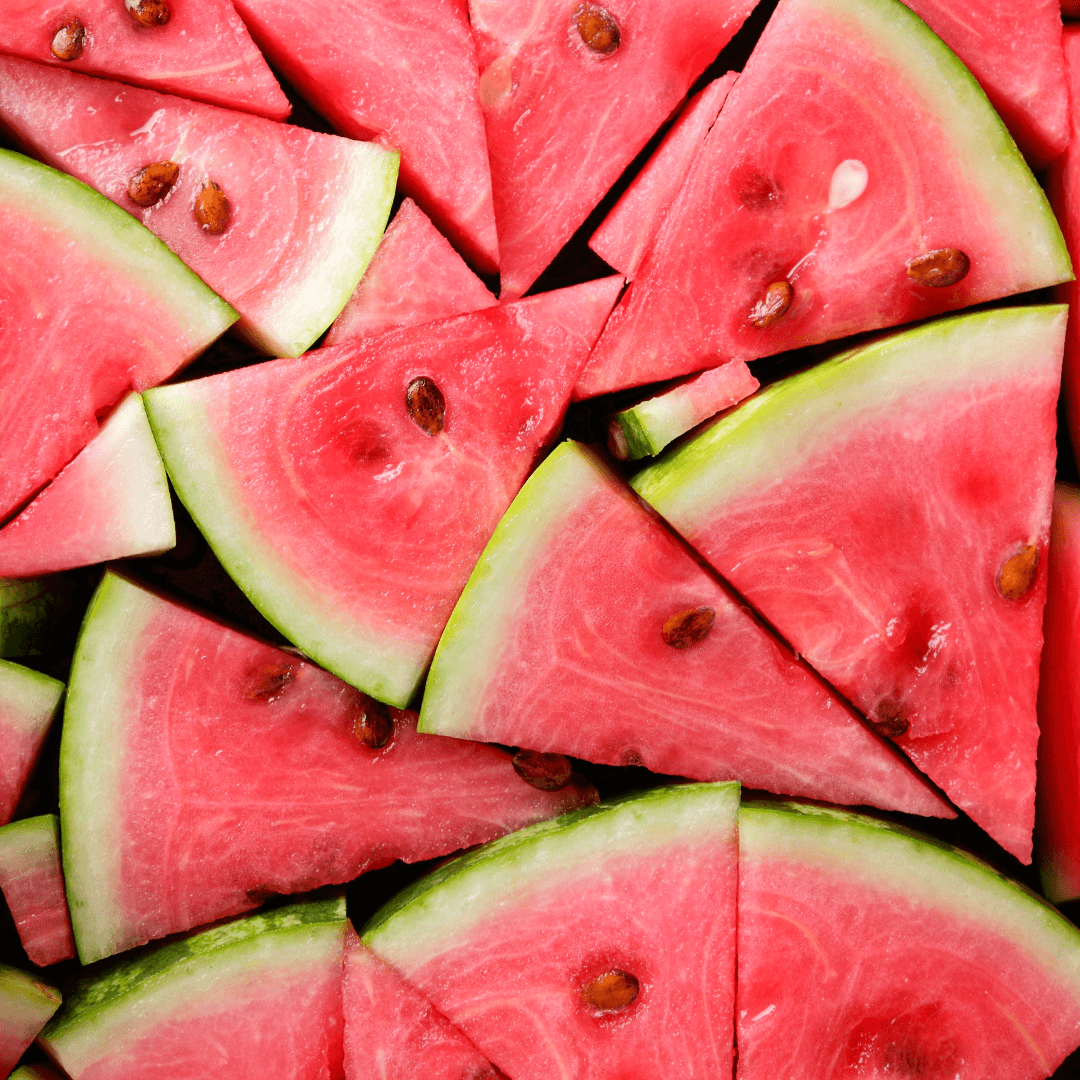
11. Watermelon
Watermelon, the quintessential summer delight, stands out as a hydrating and magnesium vegan food source for kids, offering refreshing qualities and a nutritional dimension with its high water content and essential minerals.
With its high water content, this juicy fruit becomes a source of essential minerals beneficial for your child's well-being.
Include watermelon cubes in vibrant fruit salads, creating a colourful medley that appeals to the eyes and adds magnesium to their diet.
The naturally sweet and juicy nature of watermelon makes it an irresistible snack on hot days, offering a delightful way for children to stay hydrated while enjoying the nutritional benefits.
Beyond being a tasty treat, the magnesium in watermelon supports various bodily functions, including muscle and nerve health.
Encourage your child to savour this seasonal gem, turning a simple summer snack into a flavourful and nutrient-packed experience that contributes to their overall health and enjoyment of wholesome foods.
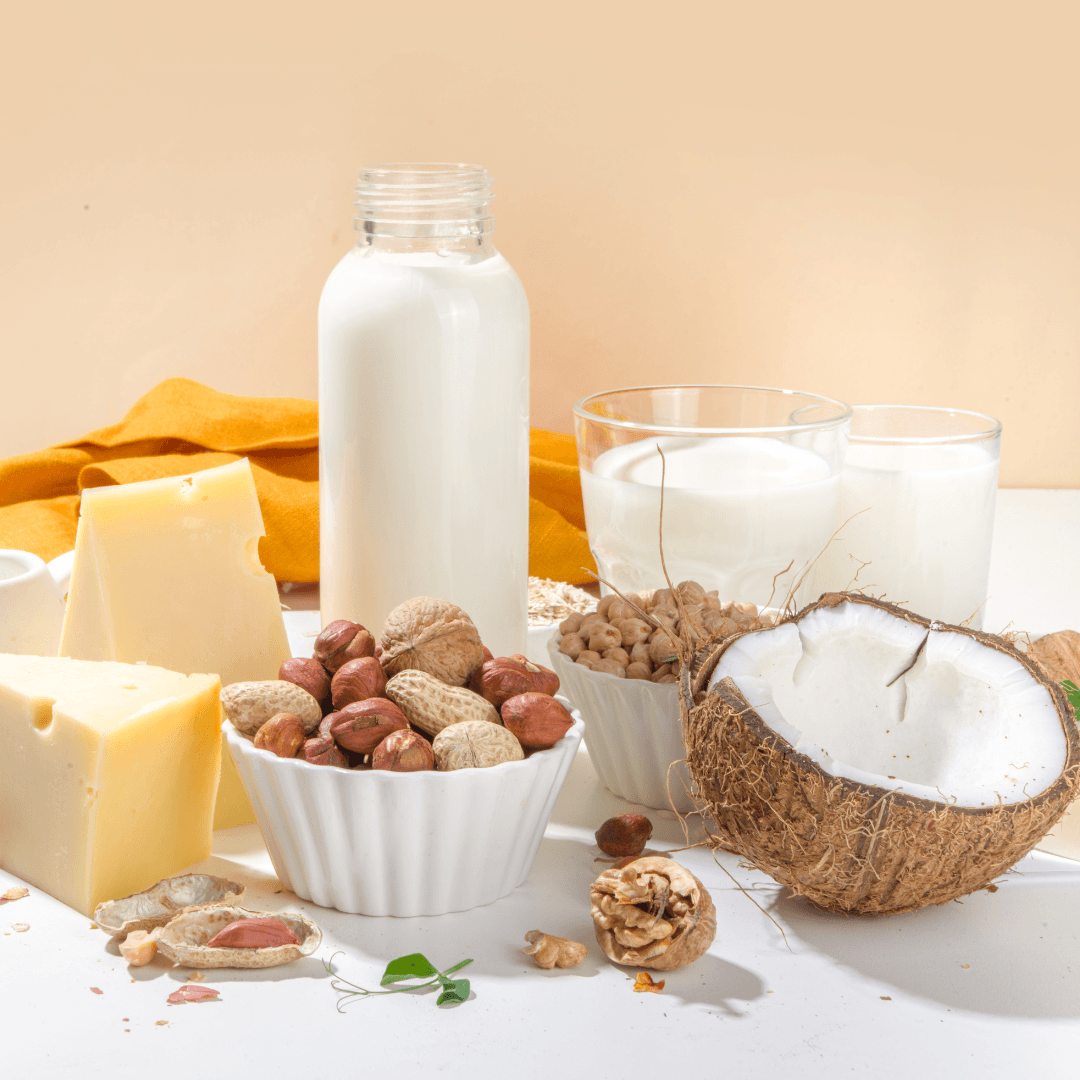
12. Plant-Based Milk Alternatives
Plant-based milk alternatives, such as almond or soy milk, offer not just a dairy-free option but also a fortified source of magnesium for your child's diet.
These milks are often enriched with essential nutrients, including magnesium, providing a valuable supplement for bone health and overall well-being.
Incorporate plant-based milk into morning routines by pouring them over cereals, creating a magnesium-rich start to the day.
Blend them into smoothies, combining their creamy texture with the nutritional benefits of fruits and vegetables.
The versatility also extends to savoury dishes – use this milk as a base for creamy sauces, ensuring a magnesium infusion in various meals.
This dairy-free alternative caters to various dietary preferences and ensures that your child receives the necessary magnesium intake in a delicious and adaptable form.
By integrating plant-based milk into daily meals, you not only foster nutritional well-being but also open the door to a diverse and flavorful culinary experience.
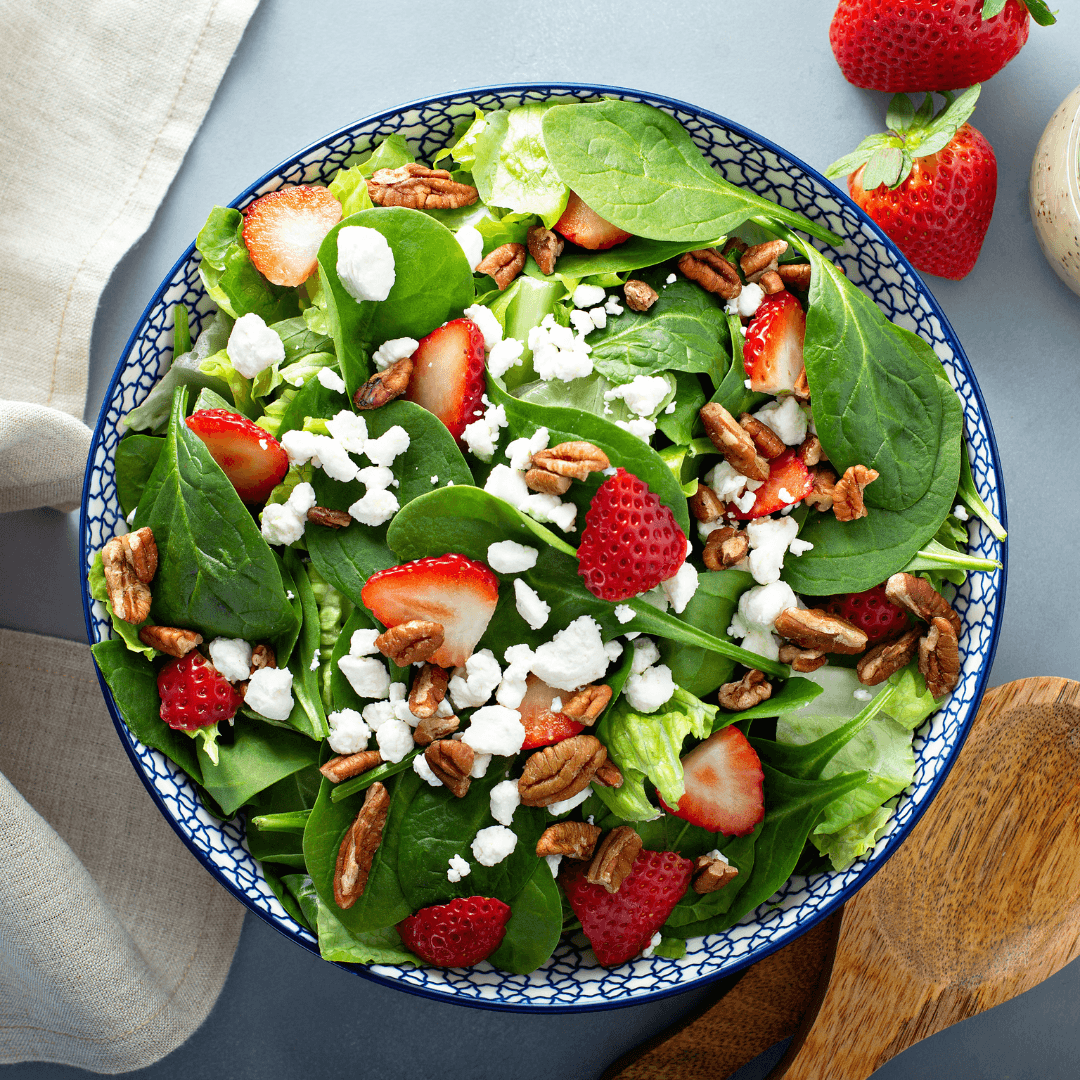
13. Fresh Herbs
Fresh herbs, such as basil, parsley, and mint, generously contribute both taste and essential magnesium, making them versatile and appealing magnesium vegan food sources for kids when incorporated into various dishes.
These aromatic herbs, rich in flavour and health benefits, can be generously incorporated into multiple dishes.
Fresh basil leaves add a fragrant twist to salads, while parsley brings freshness. Sprinkle chopped mint on fruit salads or desserts for a cooling and magnesium-rich touch.
These herbs aren't just about enhancing taste; they also contribute valuable nutrients to support bone health and overall well-being.
Whether stirred into soups, tossed into salads, or simply sprinkled on various dishes, fresh herbs elevate the nutritional profile of meals, encouraging a love for wholesome flavours.
By generously using these magnesium-rich herbs, you infuse meals with added nutrients and introduce your child to the joys of diverse and flavorful culinary experiences.
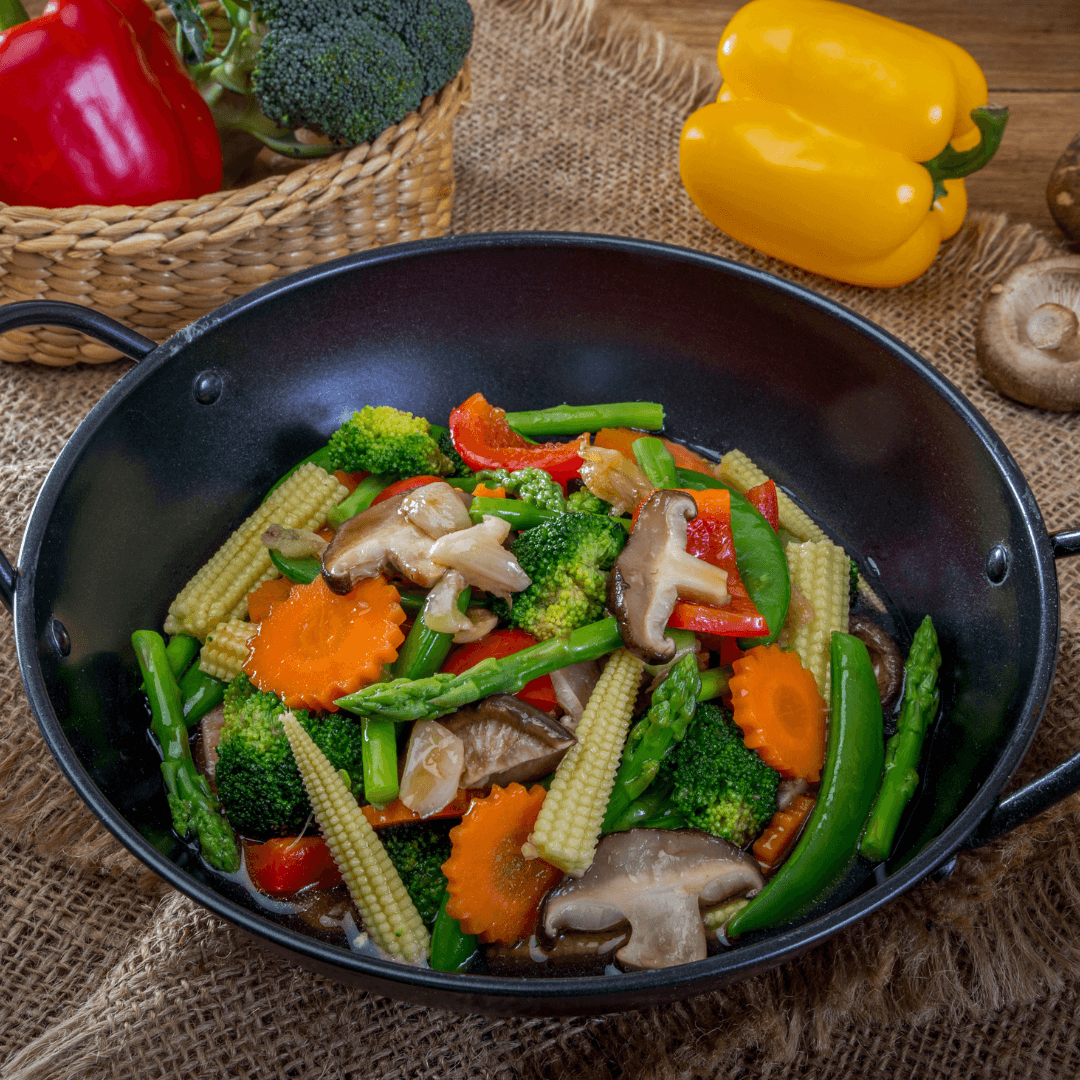
14. Stir-Fried Veggies
Stir-fried veggies present a vibrant canvas of magnesium-rich goodness, combining both flavour and nutrition in a visually appealing dish.
Broccoli, bell peppers, and snap peas take center stage, contributing a delightful crunch and essential magnesium for your child's well-being. The stir-fry method ensures these vegetables retain their crisp texture while absorbing the savoury flavours of the dish.
Add tofu or legumes to make the meal more robust. This creates a complete protein source that further enriches the magnesium content.
With its versatility, tofu absorbs the stir-fry flavours, while legumes contribute protein, fibre, and additional magnesium. This magnesium-packed stir-fry becomes a quick, colourful, and nutritious option for family meals.
Encourage your child to explore the diverse flavours and textures of stir-fried veggies, fostering a love for vegetables and ensuring they receive the essential magnesium vital for their growth and overall health.
Conclusion
Pursuing a magnesium-rich vegan diet for kids means each flavourful exploration—from the vibrant hues of berries to the versatility of tofu—becomes vital in providing diverse and delicious plant-based magnesium food sources for their growth and well-being.
From the vibrant hues of berries to the versatility of tofu, every bite contributes to their growth and well-being.
Choosing magnesium-fortified plant-based milk alternatives and embracing the joy of dark chocolate with higher cocoa content add the finishing touches to a well-rounded diet.
By infusing variety, taste, and nutritional value into each meal, we provide for our children's immediate health and instill habits that will nourish them for a lifetime, fostering a love for wholesome, plant-powered eating.
I trust you enjoyed this Best Magnesium Vegan Food Sources For Kids article. Please stay tuned for more blog posts soon. Take care!
JeannetteZ
>>>Please click here to read my Vegan Travel Guides To World Destinations<<<
>>>Want To Learn How To Create Delicious, Cruelty-Free, Healthy AND 100% Vegan Meals? Try These Awesome Vegan Cooking Courses With A Free 7-DAY MEMBERSHIP<<<
Your Opinion Is Important To Me
Do you have thoughts, ideas, or questions? I would love to hear from you. Please leave me your questions, experiences, and remarks about this Best Magnesium Vegan Food Sources For Kids article in the comments section below. You can also reach me by email at Jeannette@LivingTheVeganLifestyle.org.
Disclosure
This post may contain affiliate links. I earn from qualifying purchases as an Amazon Associate and through other affiliate programs. Please read my full disclosure.
Here are links to some of my favourite articles:
Best Vegan Sources Of Vitamin A For Your Kids
11 Amazing Vegan Salad Recipes
8 Best Vitamix Blenders Of 2022 – Reviews And Comparison
Best Vegan Restaurants In Bridgetown, Barbados
Best Vegan Restaurants In Dhaka, Bangladesh

